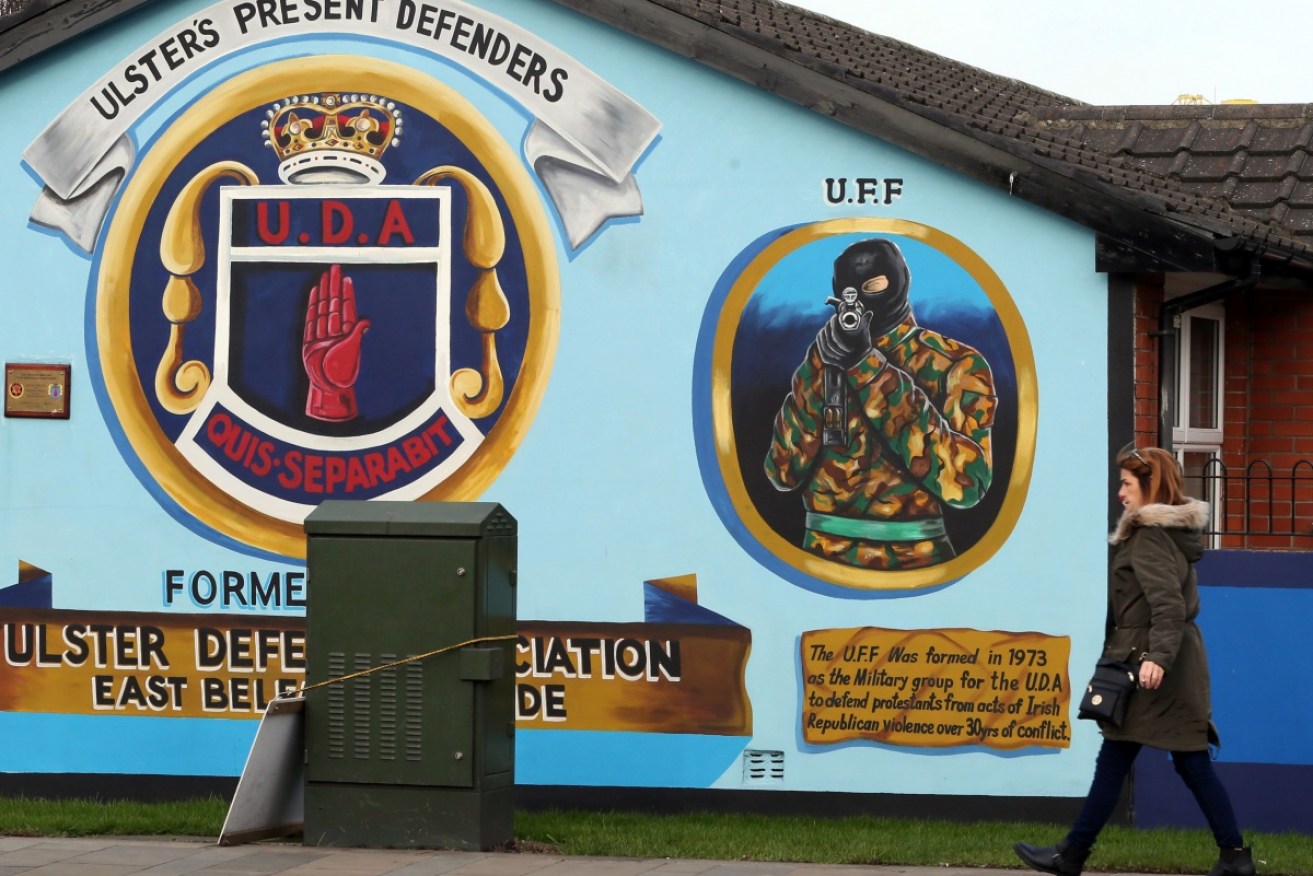Brexit and DUP power could reignite Northern Ireland’s ‘Troubles’


Northern Ireland's many murals highlight the deep divisions that still exist. Photo: Getty
The Good Friday Agreement in 1998 brought an end to decades of violence and terrorism in Northern Ireland.
Unionists (who want Northern Ireland to stay in the UK) and the Republicans (who want Northern Ireland to join the Republic of Ireland) finally agreed to end the bombs.
Or most of them did.
In 2015 six men were arrested in the Republic of Ireland after police discovered bomb-making equipment close to where Prince Charles and Camilla were due to visit.
The 2015 arrests indicate that there is still a small splinter group of radicals who were tempted back to violence.
Could the UK election and Brexit be another temptation?
The Good Friday Agreement is carefully crafted, bridging years of the hate-filled divide.
The governments of the Republic of Ireland and Great Britain were able to act as arbitrators between the Republican and Unionist groups precisely because they were collectively able to win the trust of the parties to be bridge builders.
The recent UK election, forcing Theresa May to rely upon the Unionists to form a government, undermines this perception. But is this a problem given that the agreement is done and peace is holding?
Two critical elements of the Agreement are the need for a ‘soft border’ between the Republic of Ireland and Northern Ireland, and the other is a future referendum on the status of Northern Ireland.
Brexit impacts on both of these issues, right at the time the recent election reduces the chance of the UK government being perceived as neutral. It is a perfect storm.
Following Brexit the free flow of goods and people between the EU and the UK will be subject to regulation at Britain’s border. Britain will have only one land border with the EU – in Ireland.
How can you have an open border in Ireland to comply with the Good Friday Agreement and yet have control of people and goods movements, and assert customs controls required by Brexit?
You can’t have both.
Perhaps, some suggest, an open border can remain on the island of Ireland while the customs control could be between Northern Ireland and the mainland of the UK.
But how can you have people and goods controls internal to a country? It would be like having a passport control between Melbourne and Tasmania but no passport controls between Hobart and Auckland.
If this were to happen wouldn’t that effectively divide the United Kingdom? The government with its Unionists partner is highly unlikely to accept that proposition.

Sinn Fein chief negotiator Martin McGuinness at a 1998 press conference ahead of the signing of the Good Friday Agreement. Photo: AFP/Getty
If, on the other hand, one did put customs points in Ireland it would not only breach the Good Friday Agreements, it also would highlight the divide with Europe and the majority of Northern Irish, who voted to stay in the EU.
Would this increase support for the Northern Irish to unite with Ireland and thus stay in the EU?
The Good Friday Agreement accounts for a possible referendum in Ireland “if at any time it appears likely to him that a majority of those voting would express a wish that Northern Ireland should cease to be part of the United Kingdom and form part of a united Ireland”.
But to whom must this ‘appear’? The Good Friday Agreement says this is the UK and Irish governments. I can foresee the Irish government saying there is a desire and the UK government, with Unionists partners, saying that no such desire exists.
The UK government would be on one side, the Irish on the other, right when the Northern Irish Republicans cannot trust the UK government.
There is a stalemate that provides the seed for conflict and a return to terrorism and the 2015 arrests show some people still want to head in that direction.
Andrew MacLeod is a visiting professor to Kings College London, a non-executive director to Australian and US companies, a former high level UN official and past CEO of the Committee for Melbourne.








